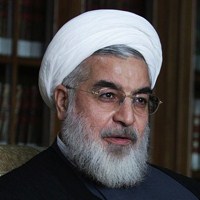Having discussed Russia’s policies toward Iran in my last column, I thought it would be instructive to analyze China’s policies toward the Islamic Republic to highlight the similarities and differences in their approaches, which are often overlooked. Beijing shares many of Moscow’s concerns, both regarding Iran’s nuclear program and the West’s reaction to it. But Chinese policymakers are often more timid than their Russian counterparts in defying Western preferences, even as they are at times bolder in seeking advantage from the crisis.
During the past decade, China has joined Russia in opposing Iran’s efforts to acquire sensitive nuclear technologies but concurs with Moscow that Tehran’s nuclear program has now developed too far to be entirely reversed. Chinese policymakers still oppose Iran’s acquisition of nuclear weapons, however, so they want Iran to limit the magnitude of its nuclear activities as well as make those efforts highly transparent to foreign monitoring to ensure their peaceful nature.
Chinese officials also agree with their Russian counterparts that the best way to dampen any Iranian nuclear weapons ambitions is through dialogue, negotiations and reassurance rather than threats or sanctions. Nonetheless, due to concerns over Persian Gulf oil supplies, China is more willing than Russia to explicitly describe Western policies toward Iran as hypocritical and to support Tehran’s ballistic missile program, even as Beijing seeks to hide behind Moscow’s lead in blocking Western sanctions against Iran.

